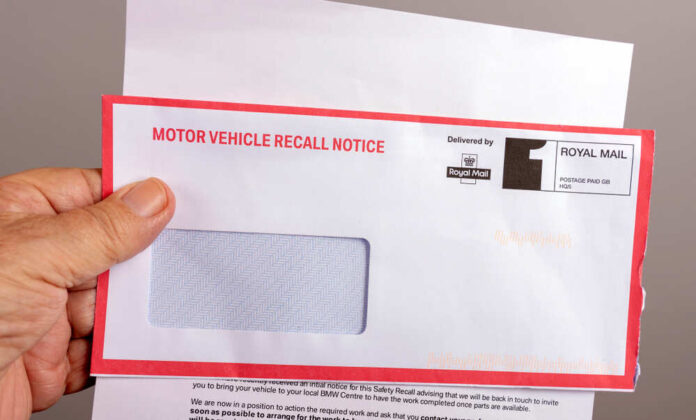
BMW, the German luxury car manufacturer, has recalled more than 90,000 sedans and SUVs because of faulty airbags. The National Highway Traffic Safety Administration (NHTSA) has raised concerns over the high probability of these airbags not deploying in case of a collision. The recall is applicable to vehicles produced between 2000 and 2015.
According to the National Highway Traffic Safety Administration (NHTSA), the airbags manufactured by Takata are defective and pose a serious threat to passengers’ safety. In the event of a rupture, the airbag inflators could propel metal fragments towards the driver’s face, potentially causing fatal or life-changing injuries.
Vehicles: BMW warns that older models are too dangerous to drive due to airbag recall https://t.co/EZSTcC3zTf #vehicles #BMW #airbag #recall
— Products and Poems (@ProductsPoems) May 7, 2023
The NHTSA has cautioned that the Takata airbags being recalled are among the oldest and carry a high risk of malfunctioning during a collision. Moreover, with the passage of time, these inflators have become even more perilous, as they could rupture even in a minor accident, putting the occupants’ lives at risk.
BMW has emphasized that owners of affected vehicles will receive free replacement parts and repairs. The company is offering to collect these vehicles from the owners’ homes or offices and take them to their nearest BMW dealerships, where the repairs can be carried out in less than an hour at no cost. Additionally, BMW is providing the option of sending remote technicians to repair the vehicles on-site, regardless of their location.
Claus Eberhart, the Vice President of Aftersales for BMW North America, has underlined the criticality of taking the recall seriously. He has emphasized that the longer the faulty airbags remain in the vehicles, the higher the risk they pose to the occupants’ safety. He added that BMW is taking every necessary step to eliminate these parts from its vehicles and has assured the owners that the repairs are hassle-free and can be arranged easily, free of charge.
BMW has identified three sedan and four SUV models as the affected vehicles, which comprise the 1, 3, and 5 Series sedans manufactured between 2000 and 2013, and the X3, X1, X6, and X5 crossover SUVs manufactured between 2000 and 2015.
Takata’s defective airbags have caused at least 33 deaths worldwide, with most occurring in the United States. Since 2009, there have been approximately 400 injuries in the US alone, with several incidents recorded in Australia and Malaysia.
BMW Recalls 90,000 Cars Due to Takata Airbag Defects
Know more: https://t.co/XTe7GDfHsq#BMWRecalls #TakataAirbagDefects #CarSafety #AutoRecalls #NationalHighwayTrafficSafetyAdministration #AirbagExplosions #DefectiveAirbags #CarManufacturer #CarModelCrisis #jsbmarketresearch pic.twitter.com/GX1AZDGz4u
— JSB Market Research (@JSBMarket) May 5, 2023
BMW is urging owners of the affected vehicles to verify if their cars fall under the “do not drive” order and cease driving them promptly. These owners are advised to schedule a free service appointment with their local BMW dealership. BMW has also highlighted that the inflators in the airbags contain ammonium nitrate, a chemical that could deteriorate over time when exposed to heat and humidity, increasing the likelihood of the airbag malfunctioning or rupturing, potentially causing injury or even death.
BMW is taking swift action to ensure the safety of its customers and is urging all affected owners to take the recall seriously and take advantage of the free repairs offered.














